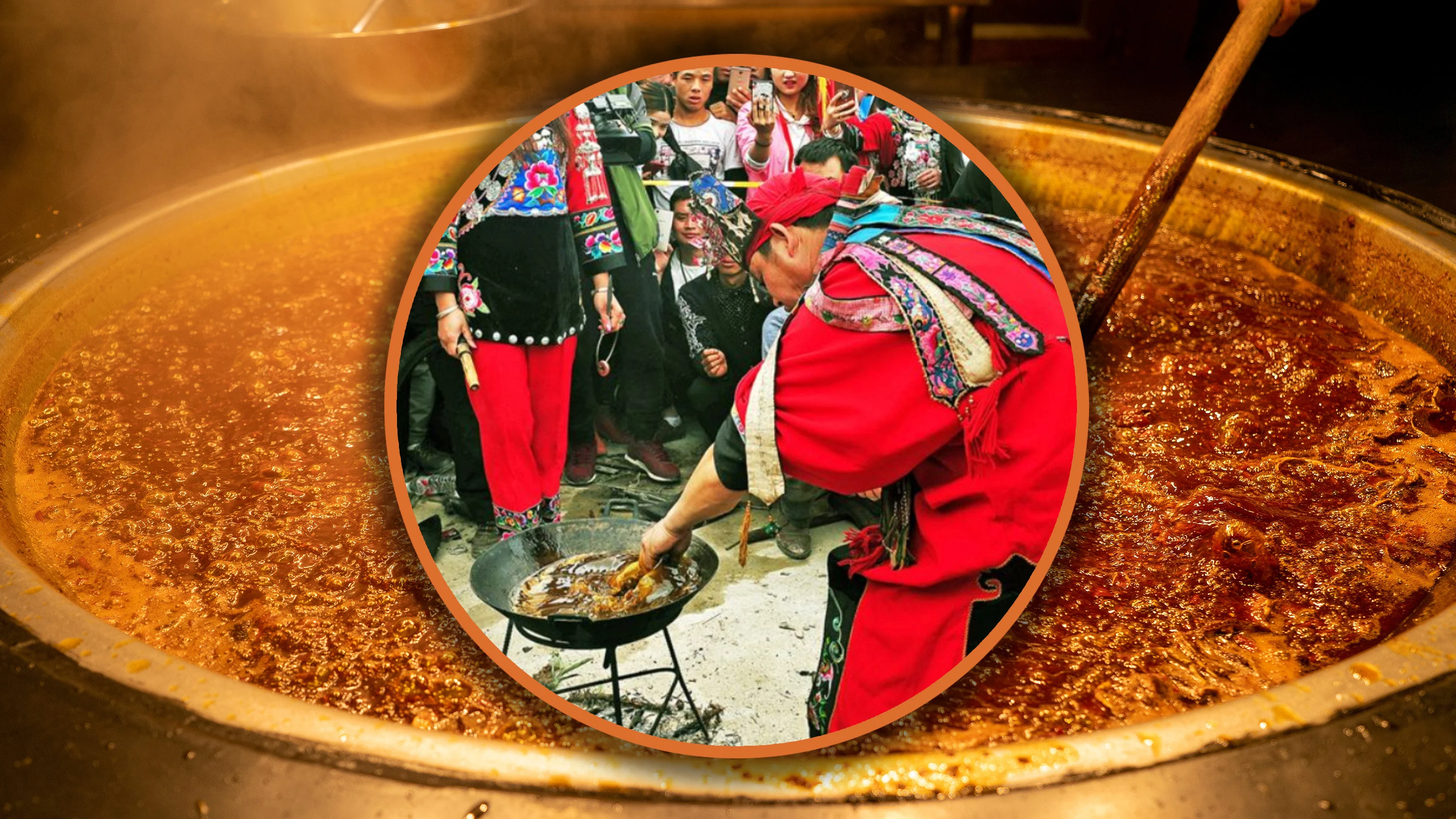Copyright scmp

In ancient China, a special method of divine judgment known as the “oil-scooping ritual” served to make final rulings in cases of theft or debt disputes. The unusual legal tool was used when evidence was insufficient or inconclusive. At the time, forensic science was underdeveloped and people lacked the knowledge to uncover the truth, often appealing to the gods to distinguish right from wrong. One such practice was the “Boiling Scoop Judgement”, known in Chinese as Lao You Guo. This was particularly prevalent among the Yi ethnic minority, who mostly live in rural areas of Yunnan and Sichuan provinces in southwestern China. Historical records indicate that in areas such as Wuding, the Yi people, deeply fearful of the government authorities, rarely filed lawsuits and instead relied on such divine judgment rituals. The ritual follows a meticulous ritual structure. First, it takes place on the top of a high mountain, symbolising closeness to the divine spirit. Next, a shaman presides over the ceremony, heating vegetable oil in a pot until it reaches boiling point while simultaneously chanting spells and performing sacred rites. Then, a small object, traditionally grains of rice in Yi culture, is thrown into the pot to be retrieved. The specific item varies by region and may include eggs, stones, axes, rings or even tiger teeth. The defendant in the case is then required to reach into the pot with a bare hand to retrieve the object. If the defendant’s hand is injured, they are deemed guilty; if their hand emerges unharmed, they are considered innocent. If the suspect is found guilty due to injury, the plaintiff must repeat the process to verify the validity of the accusation. At first glance, this “divine judgment” may seem like blatant superstition, as the accused would almost inevitably be found guilty regardless of the truth. But the reality is more complex. The shaman is always someone with extensive life experience who can be relied upon to make their judgment or carefully observe the facial expressions and behaviour of both parties to assess who is likely at fault. Using such subtle methods, they could quietly steer the ritual to promote justice and punish wrongdoing. For example, a shaman might secretly add vinegar to the oil. Since vinegar has a higher density, it sinks to the bottom. As the mixture is heated, the vinegar releases bubbles that make the surface appear to boil, even when the temperature is not actually very high. If the accused at this point quickly places their hand into the oil and retrieves the items, they are likely to remain uninjured and be deemed innocent.



